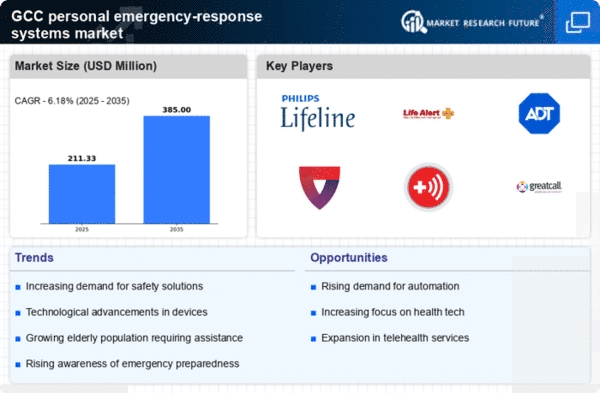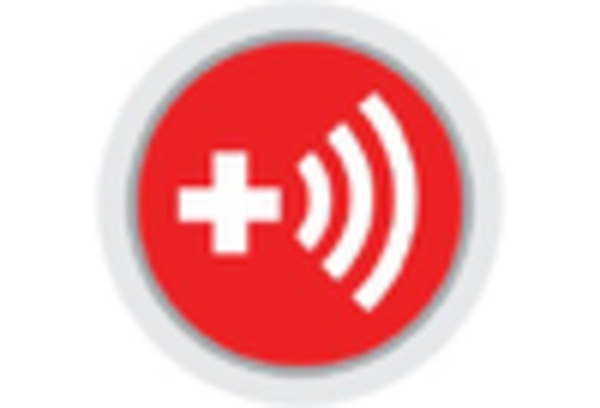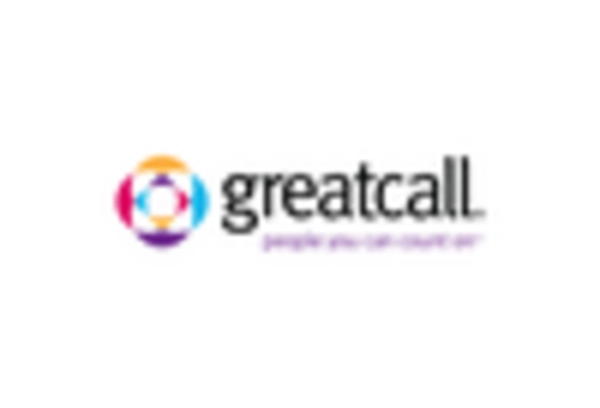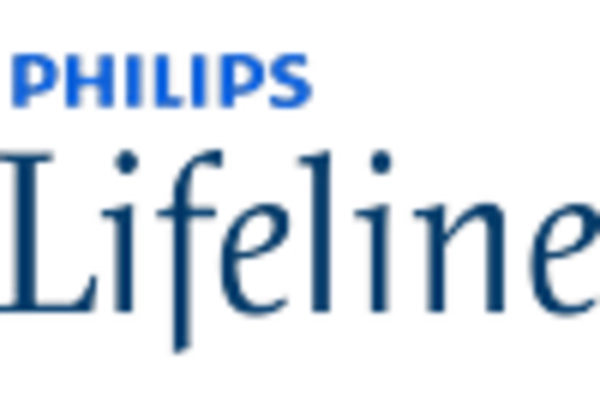Rising Healthcare Expenditure
The increasing healthcare expenditure in the GCC region is a pivotal driver for the personal emergency-response-systems market. As governments allocate more funds towards healthcare services, the demand for innovative solutions that enhance patient safety and emergency response capabilities rises. In 2025, healthcare spending in the GCC is projected to reach approximately $100 billion, reflecting a growth rate of around 5% annually. This financial commitment encourages the adoption of personal emergency-response systems, as healthcare providers seek to integrate advanced technologies that ensure timely assistance for patients in distress. Consequently, the personal emergency-response-systems market is likely to experience substantial growth, driven by the need for efficient emergency response solutions that align with the region's healthcare objectives.
Demographic Shifts and Urbanization
Demographic shifts and urbanization in the GCC are driving changes in the personal emergency-response-systems market. As urban populations grow, the density of individuals in metropolitan areas increases, leading to a higher likelihood of emergencies. The GCC is witnessing a rapid urbanization rate, with projections indicating that by 2030, over 80% of the population will reside in urban centers. This urban environment necessitates efficient emergency response systems that can cater to a larger population. Consequently, the personal emergency-response-systems market is likely to expand as urban planners and healthcare providers recognize the need for effective solutions that address the unique challenges posed by densely populated areas.
Increased Awareness of Personal Safety
There is a growing awareness of personal safety among the population in the GCC, which significantly influences the personal emergency-response-systems market. As individuals become more conscious of the importance of immediate assistance during emergencies, the demand for personal emergency-response systems is expected to surge. Surveys indicate that approximately 70% of residents in urban areas express a desire for reliable emergency response solutions. This heightened awareness is further fueled by media coverage of emergencies and the promotion of safety measures by local authorities. As a result, manufacturers and service providers are likely to innovate and market their products more aggressively, leading to a competitive landscape that benefits consumers and enhances the overall personal emergency-response-systems market.
Regulatory Support for Safety Solutions
Regulatory support for safety solutions is emerging as a crucial driver for the personal emergency-response-systems market. Governments in the GCC are increasingly recognizing the importance of personal safety and emergency preparedness, leading to the establishment of regulations that promote the adoption of emergency response technologies. Initiatives aimed at enhancing public safety are likely to encourage investments in personal emergency-response systems. For instance, new regulations may mandate the integration of such systems in residential and commercial buildings, thereby expanding the market. This regulatory environment not only fosters innovation but also instills confidence among consumers, ultimately contributing to the growth of the personal emergency-response-systems market.
Technological Integration in Healthcare
The integration of advanced technologies in healthcare is transforming the personal emergency-response-systems market. Innovations such as wearable devices, mobile applications, and telehealth services are becoming increasingly prevalent in the GCC. These technologies facilitate real-time monitoring and communication, allowing for quicker response times during emergencies. In 2025, it is estimated that the market for wearable health technology in the region will exceed $5 billion, indicating a robust interest in solutions that enhance personal safety. This trend suggests that healthcare providers and technology companies are likely to collaborate more closely, resulting in the development of sophisticated personal emergency-response systems that cater to the evolving needs of consumers.















